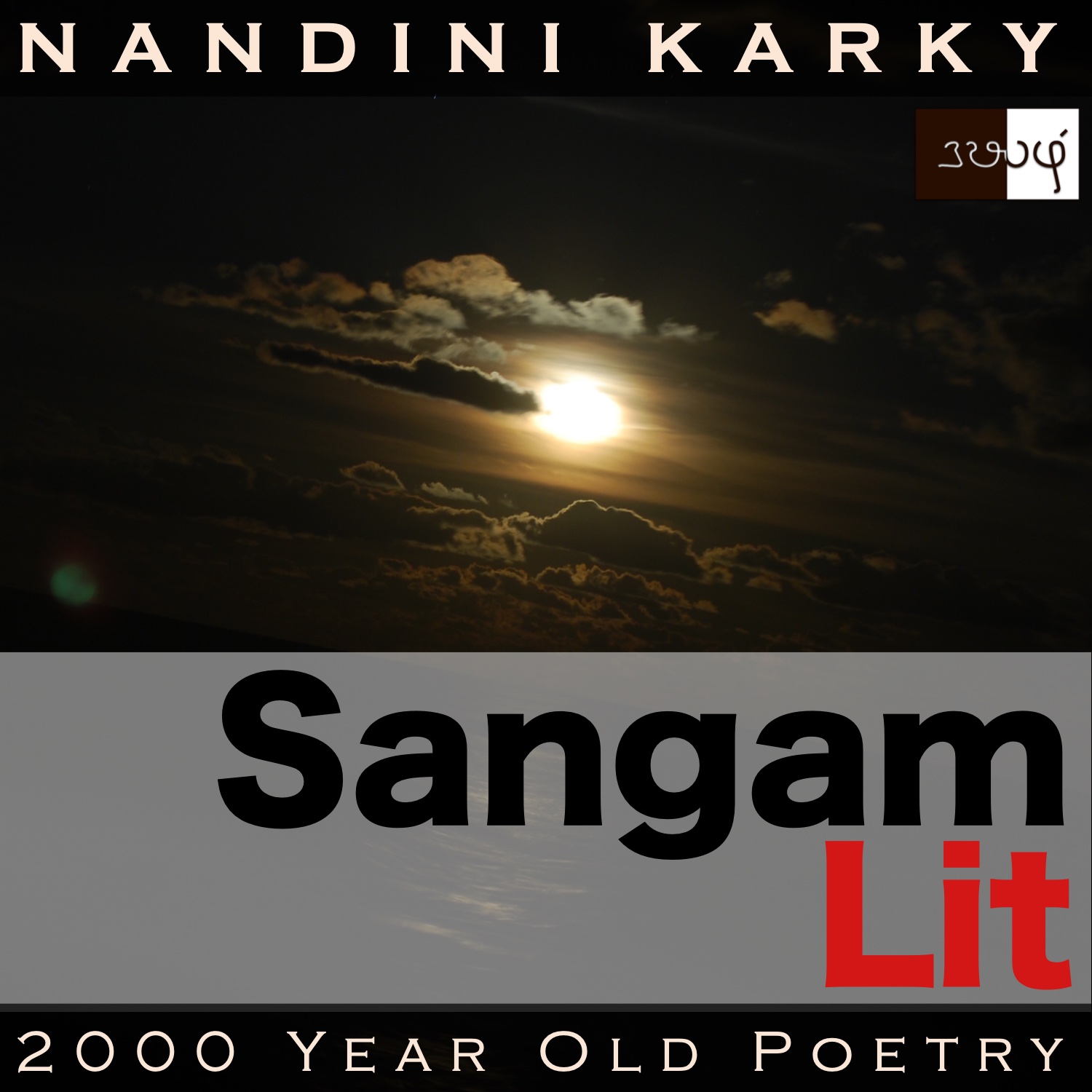Podcast: Play in new window | Download
Subscribe: Apple Podcasts | Spotify | Amazon Music | Android | iHeartRadio | TuneIn | RSS | More

In this episode, we perceive a direct call to action, as portrayed in Sangam Literary work, Natrinai 375, penned by Pothumpil Kilaar Makanaar Venkanni. Set in the coastal regions of ‘Neythal’, the verse speaks in the voice of the confidante to the man, persuading him to seek the lady’s hand in marriage.
நீடு சினைப் புன்னை நறுந் தாது உதிர,
கோடு புனை குருகின் தோடு தலைப் பெயரும்
பல் பூங் கானல் மல்கு நீர்ச் சேர்ப்ப!
அன்பு இலை; ஆதலின், தன் புலன் நயந்த
என்னும் நாணும் நன்னுதல் உவப்ப,
வருவைஆயினோ நன்றே-பெருங் கடல்
இரவுத் தலை மண்டிலம் பெயர்ந்தென, உரவுத் திரை
எறிவன போல வரூஉம்
உயர் மணல் படப்பை எம் உறைவின் ஊரே.
The song opens with the words ‘நீடு சினைப் புன்னை’ referring to ‘the long branches’ of the laurel wood tree, and reiterates the ubiquitous nature of this tree in that ancient coastal landscape. ‘நறுந் தாது’ means ‘fragrant pollen’ and makes me wonder what specifically gives a flower its scent – Could it be the pollen, as mentioned in this verse, or is it the petals? Returning to the verse, we glimpse at ‘கோடு புனை குருகு’, which means, ‘birds that adorn the top of the tree’, paving the bridge between plant and animal life. The phrase ‘அன்பு இலை’ is a striking statement meaning ‘there is no love’ and signifies the core of this verse. A precise portrait lies within the words ‘என்னும் நாணும் நன்னுதல்’ meaning ‘the lady with the fine forehead is shy even with me’, sketching for us, her gentle shades. Note how the lady is mentioned as if she and her forehead were one and the same – an oft-encountered style of reference in Sangam poetry! ‘இரவுத் தலை மண்டிலம்’ brings the night’s shining knight, ‘the moon’, to fore, and ‘உரவுத் திரை’ talks about ‘the spreading waves of the sea’. Ending with ‘எம் உறைவின் ஊரே’ meaning ‘the town where we live’, the verse welcomes us to explore more!
The man and lady had been leading a love relationship and the man had been trysting with the lady for a while. Although she doesn’t express it in words, the lady suffers and her confidante reads her mind. So, one day, when the man is about to leave after his tryst with the lady, the confidante says to him, “Making the fragrant pollen of the long-branched ‘punnai’ drop down, flocks of birds, which were decorating the tree’s heights, fly away, in the many-flowered groves by the abundant seas of your domain, O lord! There is no love in you. The lady is shy to share even with me about what her heart desires. As the moon rises on high over the vast seas, huge waves rise as if to surround the dunes in the pleasant seaside town, where we reside. If you were to come there, so as to bring joy to the lady with the fine forehead, that would be honourable!” With these words, the confidante questions if the man’s love for the lady is true and thereby, directs him in the path of permanent happiness.
Time to delve into the details! The confidante first talks about the ‘punnai’ tree, a permanent feature on the shores of then. She focuses on its long branches and fragrant pollen. Pointing out to how this pollen is being shed, she reveals the reason for the same to be a flock of birds flying away from their resting spot on the tree’s branches. Only to describe the groves of the man’s shores, have I mentioned this, the confidante says. Then, she turns from the outer world to the lady’s inner world and explains that this young woman was so shy that she would never speak of what she desires even to her best friend. After saying this, the confidante adds that the man must arrive to fill the lady with happiness. Arrive where, one may ask. To describe this place, the confidante mentions how, as the moon rises above, the waves soar to surround the sand dunes on the beach in the lady’s hamlet by the sea.
Hasn’t the man been arriving there all this time? What does the confidante mean by asking the man to arrive to the lady’s hamlet? The clue lies hidden in the words that he must come to bring joy to the lady and specifically, her fine forehead, which is coated with pallor whenever the man leaves her after the tryst. The confidante also conceals this thought in the scene of birds flying away, making pollen scatter and fall, which is a metaphor for how when the man leaves after his tryst, the lady sheds copious tears, pining for him. So, the confidante is asking the man to come to the lady’s town but, with a proposal of marriage. And if he were to do so, the lady’s kith and kin would rise and welcome him with uproar, akin to those soaring waves, when the moon appears on the skies. At the heart of it all, the confidante has rebuked the man saying he seems bereft of love, even as he trysts with the lady, for he does not look at the bigger picture of what his parting away is doing to his love. Hearing all this, the man would be chastened and hopefully, would seek to marry the lady without any further delay.
When peering at the mentioned moon and waves through the lens of science, it was only in the seventeenth century, Sir Isaac Newton talks about gravity and explains how the moon exerts its gravitational force on the world’s oceans, making waves rise. Stunning how, centuries ago, the ancients had already surmised this connection between the moon and the waves, and have seamlessly woven it in this song of love!




Share your thoughts...